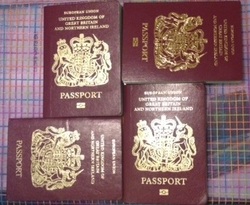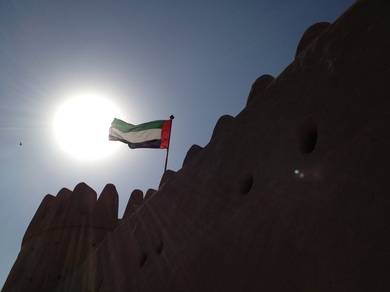Dubai: Getting legal
Meeting the legal requirements:
Health card In order to obtain a residence visa, all expats need a medical and blood test, which is usually organised by your company’s PRO. Most companies also offer private health care, but the Government health card entitles you to low cost medical treatment at public hospitals and clinics. An application form can be collected from any public hospital then submitted (typed in Arabic), along with the correct documents to your local health care centre. The health card is valid for one year and can be renewed online. You will require your passport, a covering letter from your sponsor, your visa application copy, two passport-sized photos, along with the application form. Fees are around Dhs 500 for adults. For more information visit the Dubai Health Authority website www.dha.gov.ae. Visas If you have entered the country on a tourist visa it will only be valid for 30 days and you will need to organise a residence visa in order to work and live in Dubai. To be able to apply for a visa your monthly salary must be more than Dhs 3,000 plus accommodation. You will require a typed application form, translated into Arabic, available through a typing service, an attested work contract, your marriage certificate, if you are married, which must also be attested by the UAE authorities, your medical check-up report and three passport photos, plus the fee of around Dhs 350, but this will depend on whether you’re applying through a freezone. The application is a three step process: Step 1: Go for a medical check-up, as described above, to obtain a health certificate Step 2. Go to an authorised typing office to have your application form filled in and pay the fees. Step 3: Go to the Department of Naturalization & Residency Dubai (DNRD) and submit the application form, along with supporting documents to receive the residence visa stamp on your passport. All members of your family must have a residence visa. For more information visit the Government of Dubai and DNRD websites (www.dubai.ae and www.dnrd.ae). Emirates ID The Emirates ID card is an electronic identity card issued by The Emirates Identity Authority (EIDA), required by all UAE residents. It will replace the need for a labour card, and depends on the validity of your residence visa. The application is a three step process: Step 1: Fill in an application form available from the EIDA website (www.eida.gov.ae) or an authorised typing centre. When completed, the form must be translated at a typing centre (a list of centres is also available on the website). You will need your passport, residence visa and fee. The amount payable may depend on whether you’re applying through a freezone. Step 2: Upon submission you will be sent a text message giving you the date and location of your registration. Step 3: At the appointment your photo will be taken and you will be asked to give your fingerprints. When your card is ready to be collected you will receive a text message. Visit the EIDA website (www.eida.gov.ae) for more information. Driving licence If you already have a driving licence and the issuing country appears on an official approval list then you simply need to convert your licence at an RTA office. For nationals of all other countries, you can apply for a licence after training from an authorised driving school. If you are 18-21 years of age, you can apply for a probationary licence. Before visiting an RTA office to apply for a Dubai driving licence, you will need to have an eye test and if you pass you will be given a certificate. An optician can arrange this. The following paperwork is required by the RTA (RTA office locations are listed on their website, www.rta.ae): Your Emirates ID and a copy, your passport and visa and a copy, your eye test certificate, your driving licence and a copy, a NOC letter from your sponsor (or your husband). Employing a maid Although there are plenty of cleaning services available, one of the advantages of living in Dubai is that home help is affordable in most cases, although it is still not cheap as fees are upwards of Dhs 5,000 a year, plus a monthly wage of at least Dhs 1,500 . Once you have found a maid you would like to employ, the head of your household will become her sponsor and will need to organise her visa. The maid must be from India, Sri Lanka, Philippines, Ethiopia, Bangladesh or Indonesia. Bachelors are not allowed to hire a maid. This is a three step process: Step 1: Residence visa Step 2: Medical fitness report Step 3: Residence stamp on maid's passport and issue of domestic worker card Although this appears straightforward it can be a complicated process and if you have a PRO you may wish to employ their services. A maid’s visa needs to be renewed annually. The Government of Dubai and DNRD websites (www.dubai.ae and www.dnrd.ae) outline the exact procedure. Friends could offer invaluable advice on finding a maid or try the Expat Woman forums www.expatwoman.com. Writing a will Although you may have written a will in your home country, due to Shariah Law, which generally applies to family issues, it may not be valid in the UAE. A husband’s estate will pass through his descendants, even if he intends to leave everything to his wife. If he has no sons it passes to his brothers. It’s a good idea to consult a legal expert to investigate available legal solutions. Alcohol licence If you are over 21 and non-Muslim and wish to drink alcohol, and have it in your home, you will need an alcohol licence. You can apply at MMI or African and Eastern, which are both liquor stores. You will need an application, stamped and signed by your employer, your passport, residence visa, passport photo, tenancy contract and either a labour contract, issued by the Ministry of Labour, or if you work in a freezone, a salary certificate. If you are self employed you will need your trade licence. There is also a small fee. The amount of alcohol you can buy will depend on your salary. Being drunk and disorderly is against the law. Don’t drink and drive as there is zero tolerance. Family life Co-habiting or having children out of wedlock is illegal. You will even need to show your marriage certificate at the antenatal hospital. Public displays of affection are also considered to be inappropriate. e-Gate Travel through Dubai’s airport is a frequent occurrence for expats, and to make the process smoother an e-Gate card has been introduced, to be used in conjunction with modern passports with barcodes. The e-Gate card allows you to proceed through Dubai airport more swiftly, by swiping the card and using your fingerprints. For a fee, you can link your e-Gate card to your Emirates ID so you only need one card to travel. The application can be made at a number of locations, including the airport, or for more information on the process visit www.eida.gov.ae/en/e-gate.aspx. The e-Gate system is only available to children over the age of seven. |
To stay posted either join our Explorers' Club to receive email notifications or follow us on Facebook. Good luck with your new adventure! We'd love to hear how you are getting on. Need a break?There is nothing like a bit of exploring to help you feel settled. If you've just moved to the UAE and Oman you might like to give these trips a go. Just click here:
Trips around the UAE and Oman |


